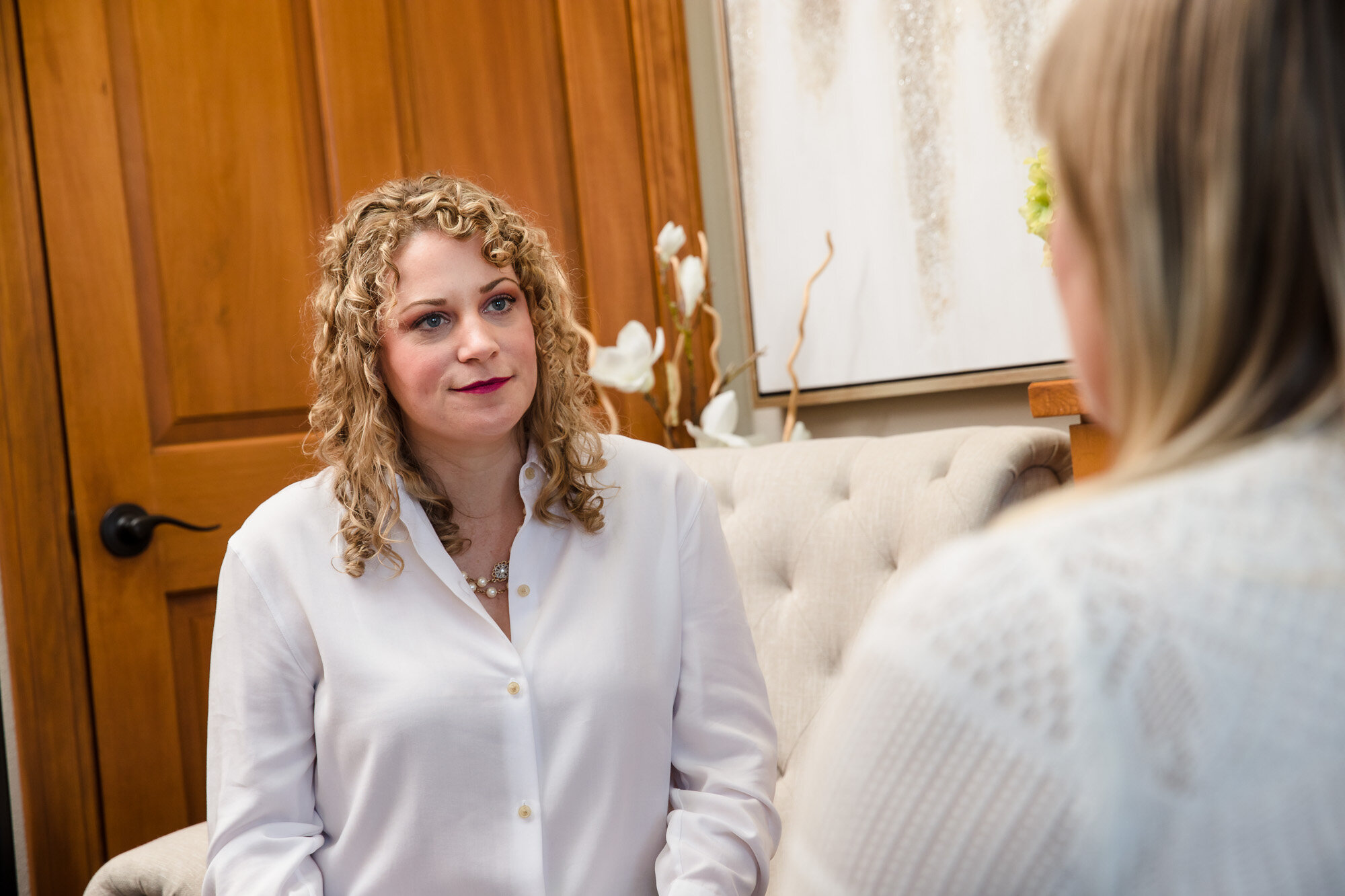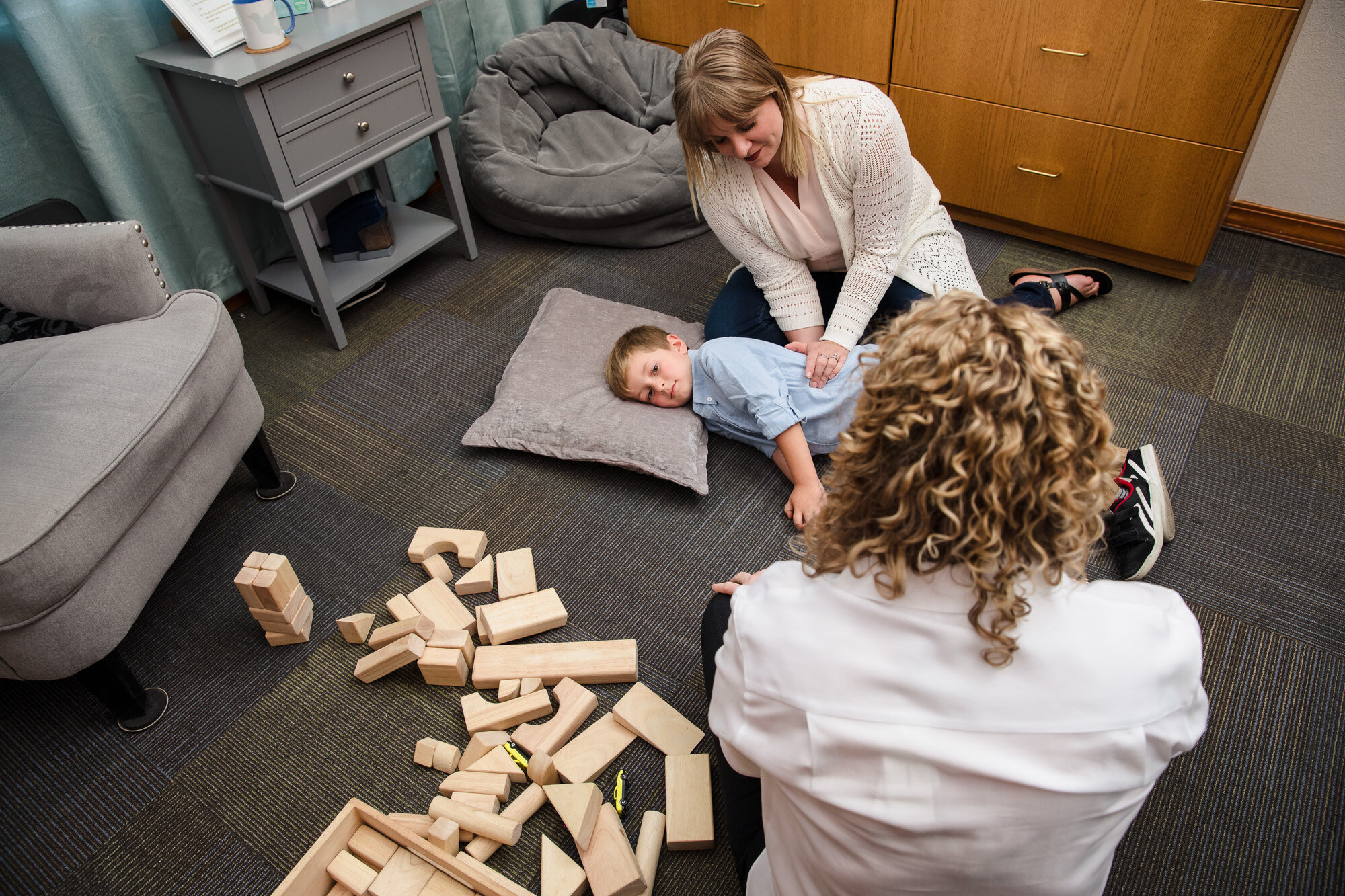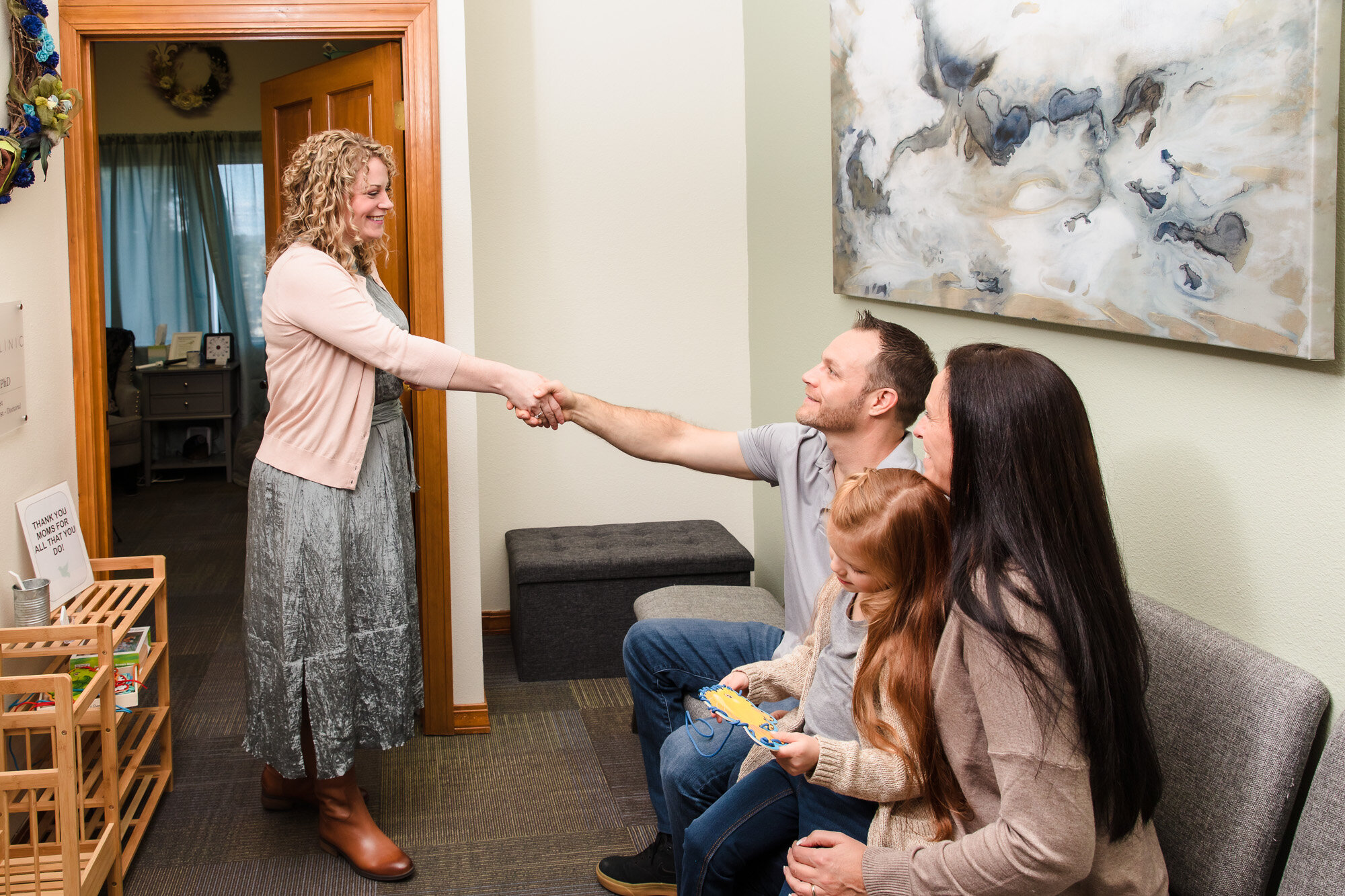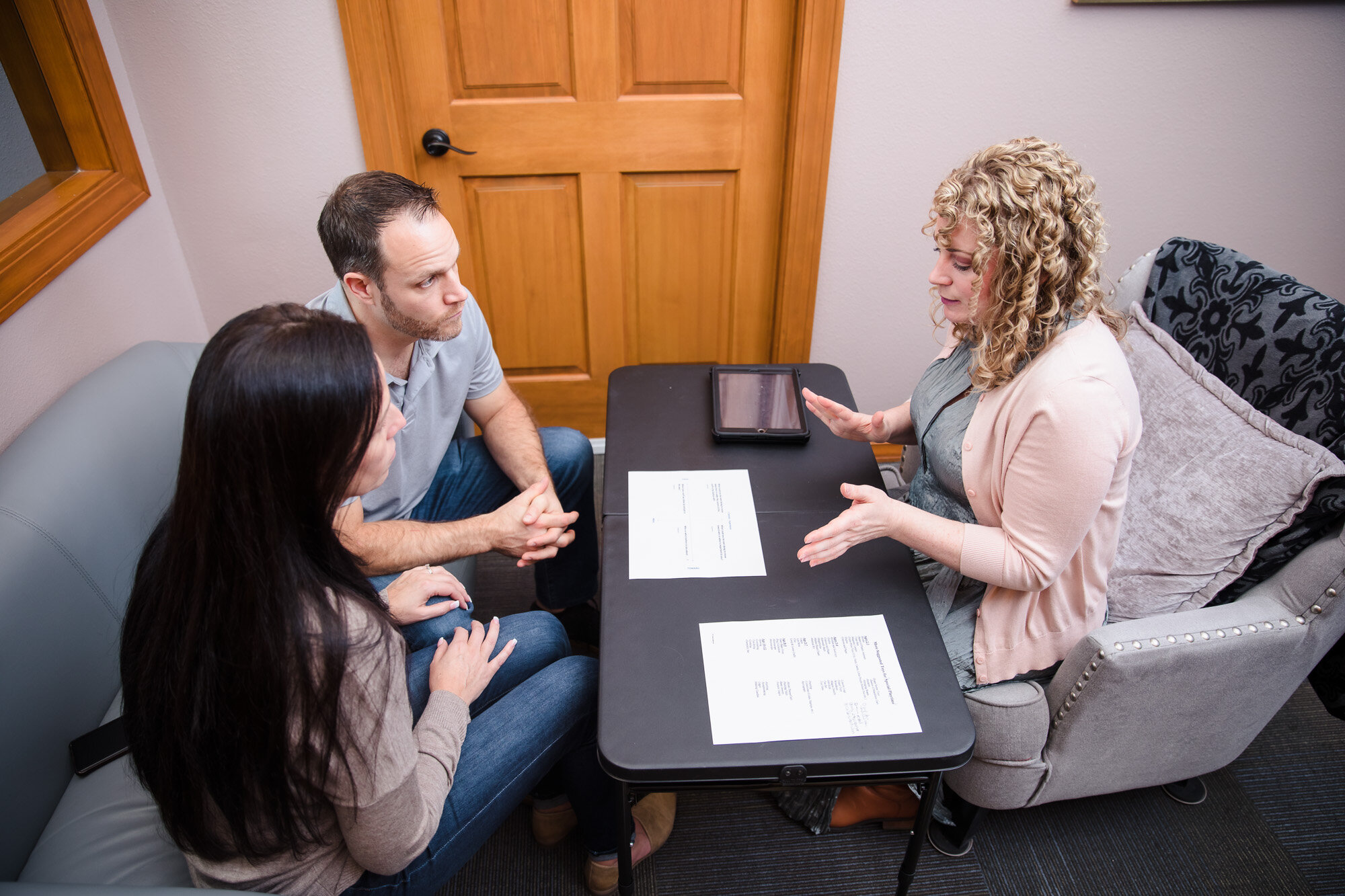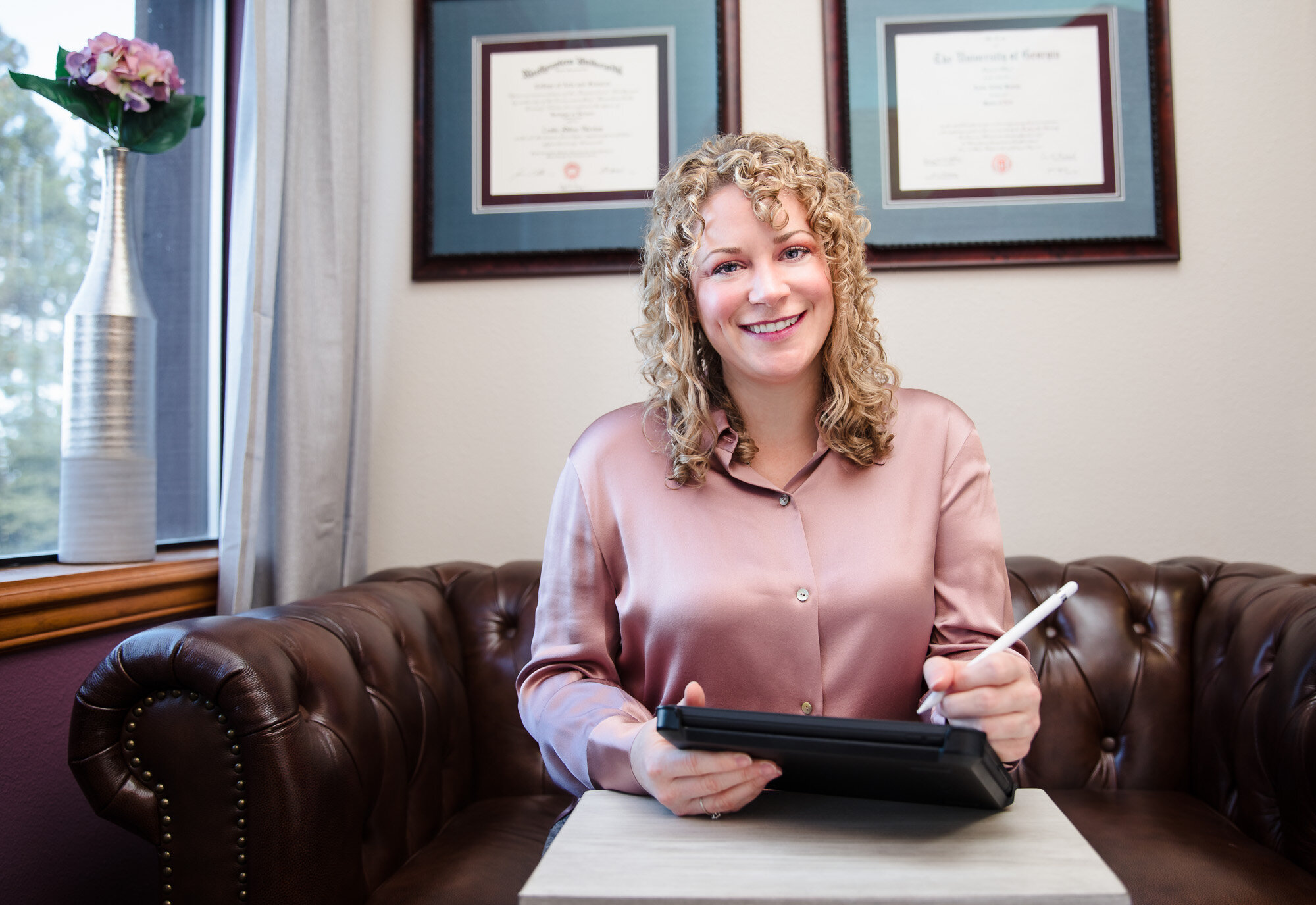I'm so excited to share with you a new e-learning tool I've developed, the How to Teach Your Child Directions e-Learning Packet. It is a free step-by-step guide of how to give effective directions to young children and how to respond to them to increase child compliance. The packet is for parents and teachers. It goes through the rationale for each step and gives examples and non-examples. I also give you pro-tips for creating your own two-week plan for using what you learn and noticing the change in your child and yourself. When you sign up to get the packet, you'll also get five emailed pro-tip videos across two weeks giving you additional information on how to stay motivated and effectively use the packet information. The e-learning packet is based on information from applied behavior analysis, acceptance and commitment therapy, and parent-child interaction therapy.
Read MoreParent's Biggest Fear #2 re: Child Therapy: Is my child crazy?
Dr. Blevins discusses another common fear brought up by parents when they've been told by someone, often well meaning, that their child may need therapy or counseling. This fear is that their child may be "crazy" or have something permanently wrong with them. Dr. Blevins discusses how this is not the correct outlook, especially with children. Children are developing rapidly, and often therapy is meant to intervene and get them back on track. With most DSM-5 disorders for children, the symptoms can be remediated with evidence-based, high-fidelity interventions, or therapy. A new way of thinking of therapy is coaching for the soft skills in life, like emotional, social, executive functioning, and language skills, that a child will need to be successful. This is similar to having a physical trainer, a coach for a sport, or a tutor in math.
Read MoreA Parent's Worst Fear When Their Child Needs Therapy
Dr. Blevins discusses the first fear many parents encounter when learning their child may need therapy. Often parents want to know why their child has developed the difficulties they have. This is totally normal! Many parents also take on total responsibility for every outcome in their child's life, leading them to have a deep fear about their own involvement in their child's difficulties. This learning video is about Dr. Blevins experience with many families as they start the therapeutic experience, accept what they can control and what they can't, and learn to embrace self-compassion while owning responsibility for interventions.
Read MoreA Traditional Home School Mom’s Perspective and Tips
Dr. Blevins interviews her good friend, Stephanie, a veteran home school mom of four children from kindergarten through high school. Stephanie has been home schooling for 12 years and currently has two elementary students, a middle schooler, and a high schooler. She discusses what her home school routine looks like normally, how it has changed due to the pandemic, and behavior strategies she uses to increase child motivation, to get her own work done, and to support working with multiple children at once. Most importantly Stephanie and Dr. Blevins discuss the value of parents participating in the education process and the silver lining and mindset shift that parents may want to embrace during the pandemic to emphasize child resiliency, emotional coping, and mental flexibility.
Read MoreParents are Building Children’s Literacy Skills at Home with Activities They Already Do
Parents can extend their normal, everyday interactions with their children to be educational. This video discusses reading and how parents can engage in reading with their younger child and participating in dialogue with children of all ages to increase reading skills. Basic reading accuracy and fluency, comprehension, and building interest in reading are discussed. This is a functional academic skill that parents might easily adapt to home school situations to meet their children’s literacy needs.
Read MoreSelf-Care is a Mindset
Learn about how to do self-care when you don’t have time to brush your teeth, let alone take a leisurely bubble bath. Dr. Blevins uses Acceptance and Commitment Therapy concepts to teach psychological flexibility concepts as they relate to anxiety, overwhelm, and stress with rigid schedules and hectic responsibilities that parents are facing during normal life and especially pandemic life. A focus on identifying value tokens, defusing from stuck thoughts, and committed action are addressed.
Read MoreFunctional Academics During Isolation: Reduce Stress
Functional academics are the basic life skills that academic learning helps us to do competently. This gets right to the point of academics. It's where the classroom meets real life. Does your child understand why and how they might use academics in real life? Homeschooling can be fun because you can focus on exploring more rather than rote practice. Maybe you do some FUN activities at home to demonstrate the usefulness of academics (while getting them to do a little reading or math). This includes cooking, grocery shopping, fixing things around the house, getting dressed, learning routines, etc. These types of activities build math skills, reading, organization, memory, and social skills. You can go to previous Enilda Clinic videos about praise to learn more about how to really target these skills when you're doing functional academics. Be creative and take pressure off yourself and your child to sit for hours doing school work by focusing on the functional parts of academics.
Read MoreYour Golden Opportunity as a Crisis-Homeschool Parent
Dr. Blevins describes the hidden opportunity parents have as they are taking on instruction roles during isolation. Specifically parents have a first-observer role watching their children learn. This allows them to see how their children learn best and what doesn’t work to support them best. If your child is in regular or special education, this type of information will be valuable for advocating for your child next school year with his or her teacher. You have the opportunity to collect data to support your child’s teacher in making evidence-based decisions. Additionally you have the opportunity to try out new strategies that typically aren’t used in the classroom. Be sure to keep notes, or data, about what you’re observing so that you can support your child and their teacher next school year.
Read MoreSportscast Your Child's Play to Build Their Attention
This video is for parents of young children or other caregivers working with young children. Dr. Blevins discusses how to use verbal descriptions of your child's play, similar to how sportscasters describe athlete's plays, to help children stay focused. This strategy can support your child in learning to attend to various new parts of a toy or in more complex interactive play, it helps build sustained attention, and helps reduce impulsive movement from toy to toy.
Read MoreHow Parents Can Teach Kids to Apologize
Many parents want their children to understand the underlying values behind apologizing or saying "I'm sorry". They try to help their children to engage in apologizing by encouraging the behavior from an early age. But often I see a paradoxical effect where children experience resentment, agitation, anger, and relationship distancing when they are made to apologize. This video discusses how parents can decide for themselves what values they intentionally want to teach by encouraging the behavior of apologizing, and how to teach apologizing to emphasize those values with toddlers and preschoolers. We discuss modeling, praise, approximations of the goal behavior, rehearsing, and value labeling as strategies parents may want to consider.
Read MoreHow a Psychologist Does Self-Care After Two Weeks in Isolation
Dr. Blevins tells you how she's engaging in self-care this week. Needs may change as the pandemic changes or isolation is prolonged. Each person should consider where they need support in their life and strive to create ways to provide self-compassion and active coping through self-care that best suits them.
Dr. Blevins' personal strategies include:
1. Taking time for personal life every day. No more workaholic lifestyle. 2. Doing physical tasks/activities that create an inner monologue of caring for one's self, like cleaning the home, doing fun personal grooming, etc. 3. Daily outside exercise 4. Creating space for normal everyday topics 5. Using a heating pad as recommended by a pharmacist to reduce eye strain and tension headaches from increased online work 6. Call people in my social network more often. Recognizing that they are wanting the support as much as me.
Read MoreGetting Less Preferred Tasks Done | Academic Organization Strategy
In this learning video, Dr. Blevins discusses how parents can support their learners to complete less preferred or more difficult tasks easier by arranging them to occur just before tasks the learner is likely to complete. Do Harder/Less Preferred Tasks, then do easier/More Preferred Tasks. A big take away of this video is that during this difficult time, parents should give themselves self-compassion with creating an academic schedule that works for their family. Not everyone will be able to do what their schools asks of them, and that's okay. Find what works for you and your child. Hopefully small organizational and prevention strategies will help you all to get through this trying time easier. Squirrel Cat is heard in the video hunting for treats in her puzzle box.
Read MoreA Physician and Psychologist Discuss Coronavirus | Families, Anxiety, & COVID-19
Dr. Blevins, a licensed psychologist, invites Dr. Fried, a double Board Certified physician in Family Medicine and Lifestyle Medicine, to have a conversation about the intersection of mental health and medical factors with the novel coronavirus. We specifically focus on how to manage information overload, anxiety, re-framing social distancing to manage stress, prevention behaviors, and how to talk to your kids about the current and future risks and outcomes that may happen with COVID-19.
Read MoreHow Telehealth Therapy Can Support You & Your Child During COVID-19 Pandemic
Learn how telehealth therapy is set up, specifically for therapy with parents and young children. Learn how Dr. Blevins thinks about approaching parent training and engaging children in telehealth, managing safety, and keeping care to provide medically necessary treatment.
Read MoreThe Importance of Getting Outside During Isolation
Exercise is a well researched method to improve your mood and your physical health. During these stressful times we still have the option to go outside. Whether you want to do something active like running or hiking, or sit in the sun and take a leisurely walk, time outside can promote health and help you feel better.
Read MoreHelping Parents Relax During Home Isolation | Mindset Shift Strategies
Dr. Blevins takes you through a mindset shift exercise to help you gain a larger perspective and flexibility during this stressful time (the COVID-19 pandemic). This type of exercise is especially helpful for parents who might be setting big goals for themselves and their children while the kids are out of school over the next several weeks. The strategies discussed in the video include self-compassion, awareness of emotion triggers, and acceptance of difficult feelings.
This video is an example of the type of mindfulness-based exercises used in Acceptance and Commitment Therapy. If you find that you or someone you know needs more targeted support during this difficult time, or at any time, please contact your primary care provider so that they can provide you with quick support that is targeted toward your needs. Many mental health providers are set up to provide telehealth services during the COVID-19 pandemic, and you may also consider seeking counseling services with a provider in your state.
Read MoreFun At-Home Experiment to Teach Children How Germs Spread
Have some fun while staying home for the next few weeks. Dr. Blevins demonstrates a simple experiment to help kids visualize how easy it is for germs to spread as well as how thoroughly you need to hand wash to get them off. Cinnamon is used to help kids see how germs spread. Dr. Blevins is providing parenting, behavioral, and coping support educational resources over the next few weeks as a special topic in her educational learning video series.
Read MoreManage Child Behavior Through Organization, Especially When Stuck at Home
Many families are doing their part to prevent the spread of COVID-19 by staying home. With kids across the US out of school for the next several weeks, I'm chatting with parents about how to minimize boredom, restlessness, and cabin fever. The strategies discussed in this video include: using the space in your home to prevent whining during academic time, reducing child interruptions during parent work time, using parent-child play time to reduce child misbehavior, managing sibling misbehavior, and using toys strategically.
Read MoreHow to Help Your Child Cope with Coronavirus Concerns
Parents are managing their own stress and helping their children to understand the transitions happening recently. School closures, limited access to community gatherings spots, and constant news can create stress. Not to mention the uncertainty of how the virus will develop and affect multiple aspects of our lives. This learning video addresses parent and child stress management, and specifically how to support your child's possible anxiety or stress during all of these changes. No medical advice is offered during this video.
Read MoreWhat All You Need in a Good Routine During School Closures
It is difficult for families recently with school closures across the US. Parents need to figure out how to keep kids busy, keep them engaged in academics, support any anxiety they may have from these changes or news, and take care of themselves while keeping up with work. Dr. Blevins, a child psychologist, is doing a series to support families during the ups and downs of this recent time. The focus will be on child behavior, emotions, coping with staying at home for weeks on end, and managing parenting stress. No medical advice will be given in these videos.
Read More
